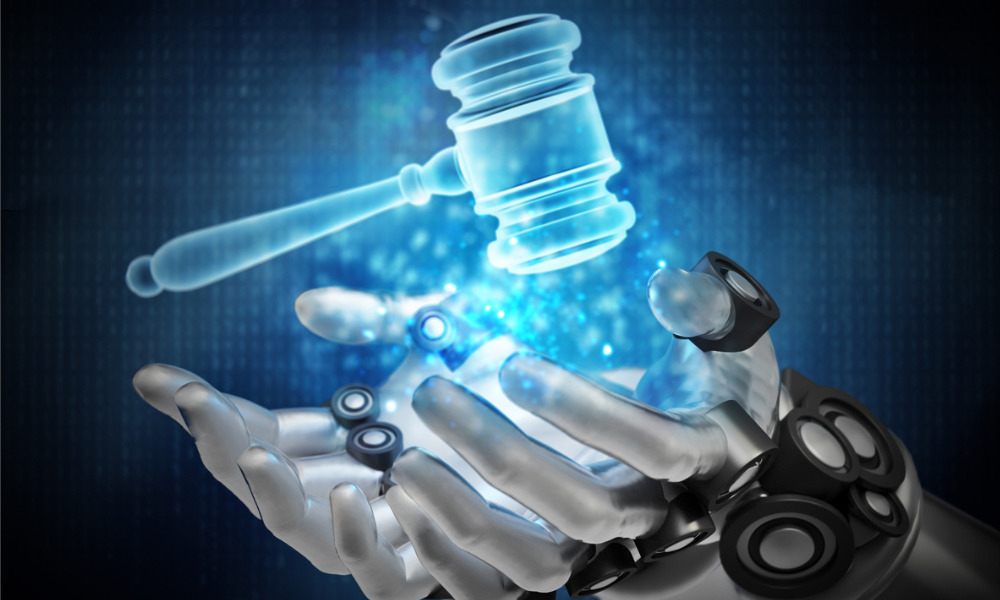Task force will provide practical information for lawyers

The American Bar Association has announced the creation of the ABA Task Force on Law and Artificial Intelligence to examine the impact of artificial intelligence on law practice and the ethical implications for lawyers. The task force will explore:
- Risks (bias, cybersecurity, privacy, and uses of AI such as spreading disinformation and undermining intellectual property protections) and how to mitigate them
- Emergent issues with generative AI
- Utilization of AI to increase access to justice
- AI governance (the role of laws and regulations, industry standards, and best practices)
- AI in legal education
“The American Bar Association and the legal profession have always lifted their voices to lead and chart the future,” said Mary L. Smith, ABA president. “At a time when both private and public sector organizations are moving rapidly to develop and use artificial intelligence, we are called again to address both the promise and the peril of emerging technologies.”
The task force is chaired by Lucy L. Thomson, an attorney and cybersecurity engineer in Washington, D.C. Thomson is a past chair of the ABA Science & Technology Law Section and a founding member of the ABA Cybersecurity Legal Task Force.
The AI Task Force includes task force members, an advisory council, and special advisors. It consists of lawyers and experts with deep technology and AI expertise.
“The AI Task Force will focus on current and emerging issues in AI and provide practical information that lawyers need to stay abreast of and navigate this complex technology. This multidisciplinary and diverse group will provide insights for developing and using AI in a trustworthy and responsible manner,” Thomson said.
The AI Task Force will build upon the significant work on AI accomplished during the past several years by the ABA. It aims to identify important work and reports by government agencies, universities, think-tanks, and industry leaders and inform lawyers about how AI can affect a lawyer’s ethical responsibilities, pose threats to confidential client data, and risk inadvertent waiver of attorney-client and attorney work product privileges. It also will look at how AI can increase access to justice and develop resources to make this technology understandable to lawyers and judges.










